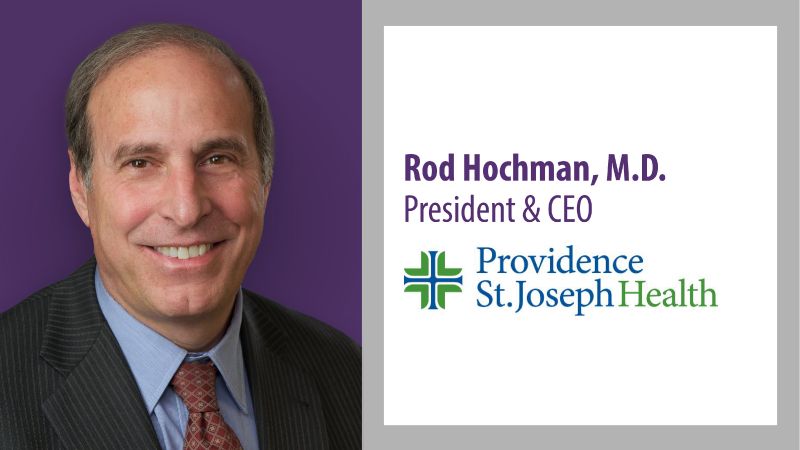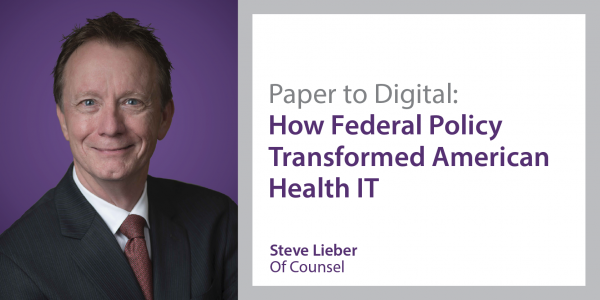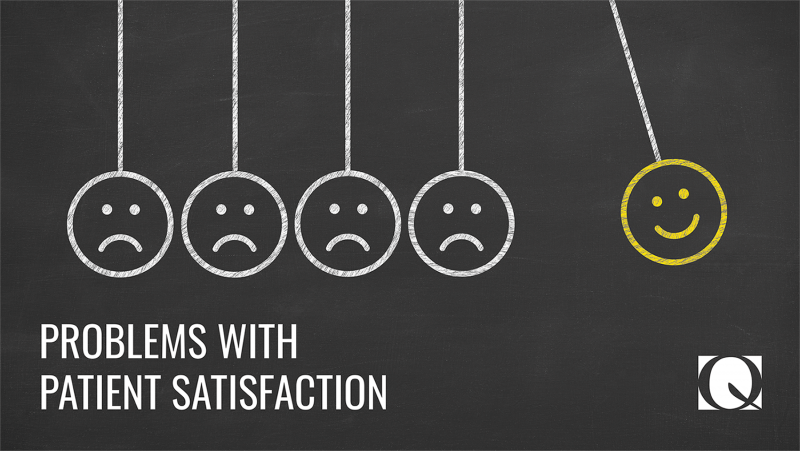Industry Insights
Explore our insights on leadership, healthcare, and executive search.
Recruiting Strategies and Tips for Medical Device Professionals
The medical world needs constantly updated technology and tools to ensure that healthcare facilities handle any patient conditions that might arise. The companies responsible for developing and manufacturing…
4 Tips to Help Your Hospital Embrace Clinical Innovation
The clinical world as we know it is in a constant state of flux. Everything from technology to care philosophy adapts continuously, bringing about new solutions and techniques…
The Rise and Future of the Chief Sustainability Officer
We learn every passing day about new ways that medicine, science, regulations, and technology directly affect the future of healthcare. Interest in and commitment to “ESG” (Environmental, Social…
5 of the Biggest Healthcare Recruiting Challenges in 2022
Healthcare professionals are increasingly difficult to come across as we move closer to 2022. Despite the valiant efforts of healthcare workers during the COVID-19 pandemic, it has become…
How to Prevent Healthcare Companies from Poaching Your Top Talent
Finding the best healthcare executives can be a tremendous challenge, but it’s a great feeling when you finally find someone who can handle the responsibility. That feeling can come…
Hospital CEO Study: Outsiders Are More Efficient Than Insiders
Finding an executive on the market capable of taking over the role of CEO in a healthcare facility is almost always an enormous undertaking. As a result, the…
4 Essential Ways Healthcare Leaders Can Empower Remote Staff
We’ve all witnessed firsthand the many ways in which both our personal and work lives have radically shifted from the versions that existed in early 2020. You’re likely…
Where to find Tomorrow’s Top C-Suite Healthcare Talent
According to HR thought leader SHRM, there’s a shortage of qualified healthcare professionals (i.e., doctors, nurses, specialists, and support staff) across the US. For further context, the medical…
How Closing the Gender Gap May be the Smartest Decision your Biopharmaceutical Company Makes all Year
Over half of the US population is made up of women. So, all it takes is some basic math to tell you that alienating women via the gender gap…
The Critical (and Often Ignored) Bond Between CEOs and CHROs
CEOs of healthcare firms must ask themselves one critical question: who’s responsible for bringing value to their business? One (incorrect) answer could be the framework or system built…
How Boutique Recruitment Firms Compete with Industry Giants (And Win)
The healthcare industry is vast, but it can feel small when you need to make a high-impact hire at the executive level. Top talents aren’t easy to come by, and…
Four Factors Changing the Future of Behavioral Health in 2021
After COVID-19, it’s safe to say that health – as everyone knows it – has changed forever. Something the pandemic brought to everyone’s attention was mental and behavioral…
Why Leadership Matters Post-Covid More Than Ever Before
Adjusting to this pandemic-based lifestyle meant an abundance of behavioral and priority changes across all sectors of society. For instance, people find themselves more focused on their mental…
Data Breaches Surge in 2021: How Healthcare CIOs Respond
Outside of the COVID-19 paradigm in which we all still exist, patients’ physical and mental well-being is and will remain the number one priority in healthcare—related and unrelated…
How to Attract Top Healthcare Executive Talent in 2021
Through all the tumult of 2020, many executives within the healthcare industry have decided to stay with their companies during the pandemic. It’s a commendable sign of leadership…
The Evolving Role of Healthcare Chief Diversity Officer
No matter how much it seems that society has advanced beyond racial biases and civil injustice, a tragedy occurs from time to time that puts everything into perspective….
Opportunities & Challenges for New Leaders Taking the Reign from Longstanding Association Executives
Stepping into the shoes of a longstanding President of an association can be a daunting task. But it can also be a breath of fresh air in leading…
4 Practical Steps to Create a More Diverse Workplace
By now, few people are left unenlightened on the benefits of diversity in the workplace, ranging from increased engagement and productivity, to more effective innovation, talent acquisition and…
The Benefits of Diversity in the Workplace
The long asserted claim that diversity benefits workplaces and outcomes has, in recent years, become axiom as study after study highlights the many ways in which qualities like…
Culture Fit: Why Is It So Important to Get Right?
Today’s candidate-driven market presents a litany of challenges for healthcare organizations. Top talent is harder to find, more expensive to hire, and more rigorous to retain than ever…
Opportunities and Challenges for Healthcare Associations and Medical Societies in Light of COVID‐19
Quick Leonard Kieffer is fortunate to have a strong network of Of Counsel partners, former industry‐ leading executives who provide subject matter expertise and insights into various segments…
Healthcare Executive Recruiting Drives Forward Amidst Coronavirus Challenges
In recent history, few events have disrupted the world on the scale of COVID-19, as every individual, community, organization, and industry faces significant challenges and adjustments in a…
Anticipating a Post‐COVID Environment in Healthcare IT
Quick Leonard Kieffer is fortunate to have Steve Lieber on its team as Of Counsel. With a long tenure of leadership in healthcare data and information management, innovation, and policy,…
Political Checkpoint Webinar
Our friends at Leavitt Partners hosted a webinar for a reflection on the latest developments of COVID-19 and the frame it puts around the 2020 election and the health care…
4 Ways Digital Transformations are Changing Healthcare
In 2020, it’s hard to imagine any area of life being able to resist change due to technology. It’s not science fiction anymore for our cars to drive…
Rod Hochman, M.D., President and CEO PSJH on COVID fight 4/2/20
Dr. Rod Hochman, President and Chief Executive Officer of Providence St. Joseph Health (PSJH), friend and client of QLK, describes COVID – 19 experience and response of PSJH and clinical…
What the Best Associations Know About Strategy
Association leaders recognize the challenges of today’s landscape when it comes to building a strong, collaborative community of like-minded individuals. Competition for membership can be tight; many associations…
The Importance of Rural Hospitals
Rural hospitals have been facing several challenges over the last decade. Reduced rural population numbers, an increase of uninsured patients, recruitment difficulties, equipment underuse, and reimbursement regulation have…
An Exact Science: Finding the right Chief Medical Officer
When the first and universal requirement for a position is a Medical Degree, the pool of qualified applicants is inherently smaller. Now add requirements that span expertise in…
Major Takeaways from Deloitte’s Analytics in Healthcare Survey Summary
As new and emerging technologies like improved AI and robotic process automation continue to flood into healthcare systems, the industry is increasingly finding itself submerged under massive amounts…
Overcoming Workforce Shortages in Healthcare Through Employee Retention
Over the past few years, healthcare leaders have been struggling to overcome the challenges of hiring talent during a workforce shortage. Making matters worse, it is not a…
Why Do Association Leaders Maintain Their Roles Longer Than Corporate Executives?
It’s clear that associations serve a purpose and deliver value. In the medical industry, associations help bring like-minded people together to increase their knowledge within their specialized field….
The Benefits and Challenges of Population Health Management Programs
Population Health Management (PHM) is a process of aggregating patient data and analyzing it into a single, actionable patient record. This relatively new approach is made possible through…
The power of an outstanding candidate experience
Long before viral videos, a 1980’s TV commercial drew in viewers with grainy, analog graphics and the promise of a product so appealing that “you’ll tell two friends,…
Employee Volunteer Programs
Winston Churchill once said, “We make a living by what we get, but we make a life by what we give.” A number of employers are now combining…
Why You Want to Partner with Industry Experts for your Talent Search
The healthcare industry is facing a lot of challenges in the coming years. Changing government requirements and mandates, patient-centered care, utilizing big data to reduce costs, and rising…
Paper to Digital: How Federal Policy Transformed American Health IT
Health care is not a business sector that has responded well to economic principles; it is not freely traded among educated buyers and sellers, and is highly regulated…
Job Satisfaction
Irish playwright George Bernard Shaw was known for his disdain for the upper class and for speaking out against what he saw as an unfair distribution of wealth…
The Benefits and Barriers of Adopting Virtual Care
One of the more important metrics that healthcare organizations use to measure success is patient satisfaction. The happier patients are with the care they’re receiving from an organization,…
Nominating New Board Members
When a board finds itself in the position of needing to elect a new general member or committee member, it might seem like a confusing process; however, it…
Electing New Board Members
After completing the nomination process for a board candidate, elections can take place via ballot or voice vote (which is known as viva voce). Although voice votes are faster than…
5 Traits To Look For When Hiring Your Next Healthcare Leader
Low-to-mid level talent acquisition in healthcare is no small feat in today’s labor market but hiring healthcare leadership positions is especially challenging for organizations. With so many pressing…
Three of QLK’s Placements Named Among Modern Healthcare’s “Top 25 Minority Executives in Healthcare”
Modern Healthcare’s list of the “Top 25 Minority Executives in Healthcare,” published every two years, honors those who are influencing policy and care delivery models across the country. The…
Key Traits Dynamic Leaders are Looking for in Healthcare Organizations
Healthcare organizations are acutely aware of the significant challenges they face in today’s labor market. They are also bracing for those challenges becoming more difficult in the near…
CEO vs. Board on Culture Impact
Who is responsible for shaping the culture of an organization – its board or its CEO? Most likely, the answer lies somewhere in between. A company’s culture evolves…
CEOs & Mandatory Retirement Age
Do CEOs have a shelf life? Some companies appear to believe so; a majority of firms in the S&P 1500, and more than a third of S&P 500 firms,…
Leaders & Self-Reflection
A key trait shared by successful leaders is the ability to engage in self-reflection. In fact, a 2010 study from Green Peak Partners and Cornell University found that “a…
Advantages to Using Executive Search Firms
Although bringing recruiting in-house may appear an attractive option to a company trying to economize, there are a number of benefits to utilizing an executive search firm to…
Mission, Vision, and Values
Jenette Nagy and Stephen B. Fawcett of the University of Kansas suggest in a document prepared for the school’s online Community Toolbox that the difference between organizations that “know exactly…
Mid-Life Career Change
Average life expectancy in the U.S. reached an all-time high in 2012, according to the CDC, of 81 years for women and 76 for men. With another decade or…
5 of the Biggest Healthcare Recruiting Challenges in 2022
Healthcare professionals are increasingly difficult to come across as we move closer to 2022. Despite the valiant efforts of healthcare workers during the COVID-19 pandemic, it has become…
How to Prevent Healthcare Companies from Poaching Your Top Talent
Finding the best healthcare executives can be a tremendous challenge, but it’s a great feeling when you finally find someone who can handle the responsibility. That feeling can come…
Hospital CEO Study: Outsiders Are More Efficient Than Insiders
Finding an executive on the market capable of taking over the role of CEO in a healthcare facility is almost always an enormous undertaking. As a result, the…
4 Essential Ways Healthcare Leaders Can Empower Remote Staff
We’ve all witnessed firsthand the many ways in which both our personal and work lives have radically shifted from the versions that existed in early 2020. You’re likely…
Four Factors Changing the Future of Behavioral Health in 2021
After COVID-19, it’s safe to say that health – as everyone knows it – has changed forever. Something the pandemic brought to everyone’s attention was mental and behavioral…
Data Breaches Surge in 2021: How Healthcare CIOs Respond
Outside of the COVID-19 paradigm in which we all still exist, patients’ physical and mental well-being is and will remain the number one priority in healthcare—related and unrelated…
How to Attract Top Healthcare Executive Talent in 2021
Through all the tumult of 2020, many executives within the healthcare industry have decided to stay with their companies during the pandemic. It’s a commendable sign of leadership…
The Evolving Role of Healthcare Chief Diversity Officer
No matter how much it seems that society has advanced beyond racial biases and civil injustice, a tragedy occurs from time to time that puts everything into perspective….
Opportunities and Challenges for Healthcare Associations and Medical Societies in Light of COVID‐19
Quick Leonard Kieffer is fortunate to have a strong network of Of Counsel partners, former industry‐ leading executives who provide subject matter expertise and insights into various segments…
Healthcare Executive Recruiting Drives Forward Amidst Coronavirus Challenges
In recent history, few events have disrupted the world on the scale of COVID-19, as every individual, community, organization, and industry faces significant challenges and adjustments in a…
Anticipating a Post‐COVID Environment in Healthcare IT
Quick Leonard Kieffer is fortunate to have Steve Lieber on its team as Of Counsel. With a long tenure of leadership in healthcare data and information management, innovation, and policy,…
4 Ways Digital Transformations are Changing Healthcare
In 2020, it’s hard to imagine any area of life being able to resist change due to technology. It’s not science fiction anymore for our cars to drive…
Rod Hochman, M.D., President and CEO PSJH on COVID fight 4/2/20
Dr. Rod Hochman, President and Chief Executive Officer of Providence St. Joseph Health (PSJH), friend and client of QLK, describes COVID – 19 experience and response of PSJH and clinical…
The Importance of Rural Hospitals
Rural hospitals have been facing several challenges over the last decade. Reduced rural population numbers, an increase of uninsured patients, recruitment difficulties, equipment underuse, and reimbursement regulation have…
An Exact Science: Finding the right Chief Medical Officer
When the first and universal requirement for a position is a Medical Degree, the pool of qualified applicants is inherently smaller. Now add requirements that span expertise in…
Major Takeaways from Deloitte’s Analytics in Healthcare Survey Summary
As new and emerging technologies like improved AI and robotic process automation continue to flood into healthcare systems, the industry is increasingly finding itself submerged under massive amounts…
Overcoming Workforce Shortages in Healthcare Through Employee Retention
Over the past few years, healthcare leaders have been struggling to overcome the challenges of hiring talent during a workforce shortage. Making matters worse, it is not a…
The Benefits and Challenges of Population Health Management Programs
Population Health Management (PHM) is a process of aggregating patient data and analyzing it into a single, actionable patient record. This relatively new approach is made possible through…
Paper to Digital: How Federal Policy Transformed American Health IT
Health care is not a business sector that has responded well to economic principles; it is not freely traded among educated buyers and sellers, and is highly regulated…
The Benefits and Barriers of Adopting Virtual Care
One of the more important metrics that healthcare organizations use to measure success is patient satisfaction. The happier patients are with the care they’re receiving from an organization,…
5 Traits To Look For When Hiring Your Next Healthcare Leader
Low-to-mid level talent acquisition in healthcare is no small feat in today’s labor market but hiring healthcare leadership positions is especially challenging for organizations. With so many pressing…
Three of QLK’s Placements Named Among Modern Healthcare’s “Top 25 Minority Executives in Healthcare”
Modern Healthcare’s list of the “Top 25 Minority Executives in Healthcare,” published every two years, honors those who are influencing policy and care delivery models across the country. The…
Key Traits Dynamic Leaders are Looking for in Healthcare Organizations
Healthcare organizations are acutely aware of the significant challenges they face in today’s labor market. They are also bracing for those challenges becoming more difficult in the near…
Value Based Care & Population Health
Hospitals & Health Networks recently published an insightful article from John Kitzhaber, MD, a physician and former governor of Oregon, in which he addressed four forces he sees as shaping…
The Problem with Patient Satisfaction
The Affordable Care Act of 2010 established the Hospital Value-Based Purchasing program, implemented through the Centers for Medicare and Medicaid Services. In October of 2012, the program began withholding one percent of…
Hospital CEO Turnover
The rate of turnover at the highest level of hospital administration is, and has historically been, significant, a concern when considering the need for stability and continuity to…
The Expanding Healthcare C-Suite
As health care is undergoing significant change, the c-suite in healthcare organizations is expanding to include new roles that address new expectations in the marketplace; a recent survey by the…
Population Health Management Creates Need for New Roles in Healthcare
In an era of healthcare reform, hospitals and health systems have begun the journey to transform the way care is delivered. In the future, providers will be held…
The Rise and Future of the Chief Sustainability Officer
We learn every passing day about new ways that medicine, science, regulations, and technology directly affect the future of healthcare. Interest in and commitment to “ESG” (Environmental, Social…
The Critical (and Often Ignored) Bond Between CEOs and CHROs
CEOs of healthcare firms must ask themselves one critical question: who’s responsible for bringing value to their business? One (incorrect) answer could be the framework or system built…
Why Leadership Matters Post-Covid More Than Ever Before
Adjusting to this pandemic-based lifestyle meant an abundance of behavioral and priority changes across all sectors of society. For instance, people find themselves more focused on their mental…
The Evolving Role of Healthcare Chief Diversity Officer
No matter how much it seems that society has advanced beyond racial biases and civil injustice, a tragedy occurs from time to time that puts everything into perspective….
Opportunities & Challenges for New Leaders Taking the Reign from Longstanding Association Executives
Stepping into the shoes of a longstanding President of an association can be a daunting task. But it can also be a breath of fresh air in leading…
4 Practical Steps to Create a More Diverse Workplace
By now, few people are left unenlightened on the benefits of diversity in the workplace, ranging from increased engagement and productivity, to more effective innovation, talent acquisition and…
The Benefits of Diversity in the Workplace
The long asserted claim that diversity benefits workplaces and outcomes has, in recent years, become axiom as study after study highlights the many ways in which qualities like…
Leaders & Self-Reflection
A key trait shared by successful leaders is the ability to engage in self-reflection. In fact, a 2010 study from Green Peak Partners and Cornell University found that “a…
Mid-Life Career Change
Average life expectancy in the U.S. reached an all-time high in 2012, according to the CDC, of 81 years for women and 76 for men. With another decade or…
Emotional Intelligence & Leadership
Emotional intelligence is defined as the ability to identify and manage your own emotions and the emotions of others, and to harness emotions and apply them to tasks like thinking and…
Networking for Leaders
In 2007, Herminia Ibarra and Mark Lee Hunter, professors at INSEAD, published an article in Harvard Business Review entitled “How Leaders Create and Use Networks”; ten years later, the concepts…
Recruiting Strategies and Tips for Medical Device Professionals
The medical world needs constantly updated technology and tools to ensure that healthcare facilities handle any patient conditions that might arise. The companies responsible for developing and manufacturing…
4 Tips to Help Your Hospital Embrace Clinical Innovation
The clinical world as we know it is in a constant state of flux. Everything from technology to care philosophy adapts continuously, bringing about new solutions and techniques…
The Rise and Future of the Chief Sustainability Officer
We learn every passing day about new ways that medicine, science, regulations, and technology directly affect the future of healthcare. Interest in and commitment to “ESG” (Environmental, Social…
5 of the Biggest Healthcare Recruiting Challenges in 2022
Healthcare professionals are increasingly difficult to come across as we move closer to 2022. Despite the valiant efforts of healthcare workers during the COVID-19 pandemic, it has become…
How to Prevent Healthcare Companies from Poaching Your Top Talent
Finding the best healthcare executives can be a tremendous challenge, but it’s a great feeling when you finally find someone who can handle the responsibility. That feeling can come…
Hospital CEO Study: Outsiders Are More Efficient Than Insiders
Finding an executive on the market capable of taking over the role of CEO in a healthcare facility is almost always an enormous undertaking. As a result, the…
Where to find Tomorrow’s Top C-Suite Healthcare Talent
According to HR thought leader SHRM, there’s a shortage of qualified healthcare professionals (i.e., doctors, nurses, specialists, and support staff) across the US. For further context, the medical…
How Closing the Gender Gap May be the Smartest Decision your Biopharmaceutical Company Makes all Year
Over half of the US population is made up of women. So, all it takes is some basic math to tell you that alienating women via the gender gap…
How Boutique Recruitment Firms Compete with Industry Giants (And Win)
The healthcare industry is vast, but it can feel small when you need to make a high-impact hire at the executive level. Top talents aren’t easy to come by, and…
How to Attract Top Healthcare Executive Talent in 2021
Through all the tumult of 2020, many executives within the healthcare industry have decided to stay with their companies during the pandemic. It’s a commendable sign of leadership…
Culture Fit: Why Is It So Important to Get Right?
Today’s candidate-driven market presents a litany of challenges for healthcare organizations. Top talent is harder to find, more expensive to hire, and more rigorous to retain than ever…
Healthcare Executive Recruiting Drives Forward Amidst Coronavirus Challenges
In recent history, few events have disrupted the world on the scale of COVID-19, as every individual, community, organization, and industry faces significant challenges and adjustments in a…
Overcoming Workforce Shortages in Healthcare Through Employee Retention
Over the past few years, healthcare leaders have been struggling to overcome the challenges of hiring talent during a workforce shortage. Making matters worse, it is not a…
The power of an outstanding candidate experience
Long before viral videos, a 1980’s TV commercial drew in viewers with grainy, analog graphics and the promise of a product so appealing that “you’ll tell two friends,…
Why You Want to Partner with Industry Experts for your Talent Search
The healthcare industry is facing a lot of challenges in the coming years. Changing government requirements and mandates, patient-centered care, utilizing big data to reduce costs, and rising…
Job Satisfaction
Irish playwright George Bernard Shaw was known for his disdain for the upper class and for speaking out against what he saw as an unfair distribution of wealth…
Nominating New Board Members
When a board finds itself in the position of needing to elect a new general member or committee member, it might seem like a confusing process; however, it…
Electing New Board Members
After completing the nomination process for a board candidate, elections can take place via ballot or voice vote (which is known as viva voce). Although voice votes are faster than…
5 Traits To Look For When Hiring Your Next Healthcare Leader
Low-to-mid level talent acquisition in healthcare is no small feat in today’s labor market but hiring healthcare leadership positions is especially challenging for organizations. With so many pressing…
Advantages to Using Executive Search Firms
Although bringing recruiting in-house may appear an attractive option to a company trying to economize, there are a number of benefits to utilizing an executive search firm to…
Job Hopping
The term “job-hopping” can mean different things to different people; Frank Dadah of recruitment firm WinterWyman defines it as “moving from one company to the next every one to two…
Evolution of Human Resources Management
Over the past century, there has been an evolution in the concept of “human resources” – a term that was not actually used in its current form until…
10 Most Common Hiring Mistakes & How to Avoid Them
Making the right hiring decisions is one of the most critical tasks in leading an organization, and possibly one of the most difficult. Following are ten of the…
Population Health Management Creates Need for New Roles in Healthcare
In an era of healthcare reform, hospitals and health systems have begun the journey to transform the way care is delivered. In the future, providers will be held…
Three of QLK’s Placements Named Among Modern Healthcare’s “Top 25 Minority Executives in Healthcare”
Modern Healthcare’s list of the “Top 25 Minority Executives in Healthcare,” published every two years, honors those who are influencing policy and care delivery models across the country. The…
SPOTLIGHT: Interview with Pam Davis
After an Astounding 28 Years, our Friend Pam Davis Retires as the CEO of Edward Elmhurst. Meet the Woman Who Never Stops In November of 2016, Pamela Davis…
SPOTLIGHT: Interview with Deborah J. Bowen, President & CEO at the American College of Healthcare Executives
Deborah J. Bowen assumed the role of president and chief executive officer of the American College of Healthcare Executives (ACHE) on May 13, 2013 upon the retirement of…
SPOTLIGHT: Interview with Sandra Bruce
Sandra Bruce has had a remarkable and extensive career as a healthcare leader. Bruce, who officially retired on September 30, 2015, at the age of 70, has been actively…































































